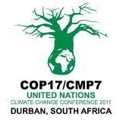 The WWF report this week on how New Zealand has handled its responsibilities since the first Earth Summit 20 years ago is damning on the matter of greenhouse gas emissions. We have failed to measure up to our undertakings given back in 1992 and again in 2002. New Zealand signed up to the United Nations Framework Convention on Climate Change on the first day of the that Rio meeting, and subsequently ratified it. We committed in Article 4 to:
The WWF report this week on how New Zealand has handled its responsibilities since the first Earth Summit 20 years ago is damning on the matter of greenhouse gas emissions. We have failed to measure up to our undertakings given back in 1992 and again in 2002. New Zealand signed up to the United Nations Framework Convention on Climate Change on the first day of the that Rio meeting, and subsequently ratified it. We committed in Article 4 to:
“Adopt national policies and take corresponding measures on the mitigation of climate change, by limiting its anthropogenic emissions of greenhouse gases and protecting and enhancing its greenhouse gas sinks and reservoirs. These policies and measures will demonstrate that developed countries are taking the lead.”
The WWF report points out that nothing happened here for the next fourteen years and the country’s greenhouse gas emissions continued to increase. They flattened off after 2007, but that was mainly due to a major drought affecting agriculture and then the subsequent recession. The report considers the Emissions Trading Scheme enacted in 2008 and weakened in 2009 has had limited impact on emissions.
We have clearly failed to set emissions on a downward trajectory.
Continue reading “20 years on, NZ’s Rio response inadequate: WWF”

 Simon Johnson discusses the Durban UNFCCC international climate negotiations through the historic lens of the Second World War and the Rio 1992 Earth Summit.
Simon Johnson discusses the Durban UNFCCC international climate negotiations through the historic lens of the Second World War and the Rio 1992 Earth Summit.